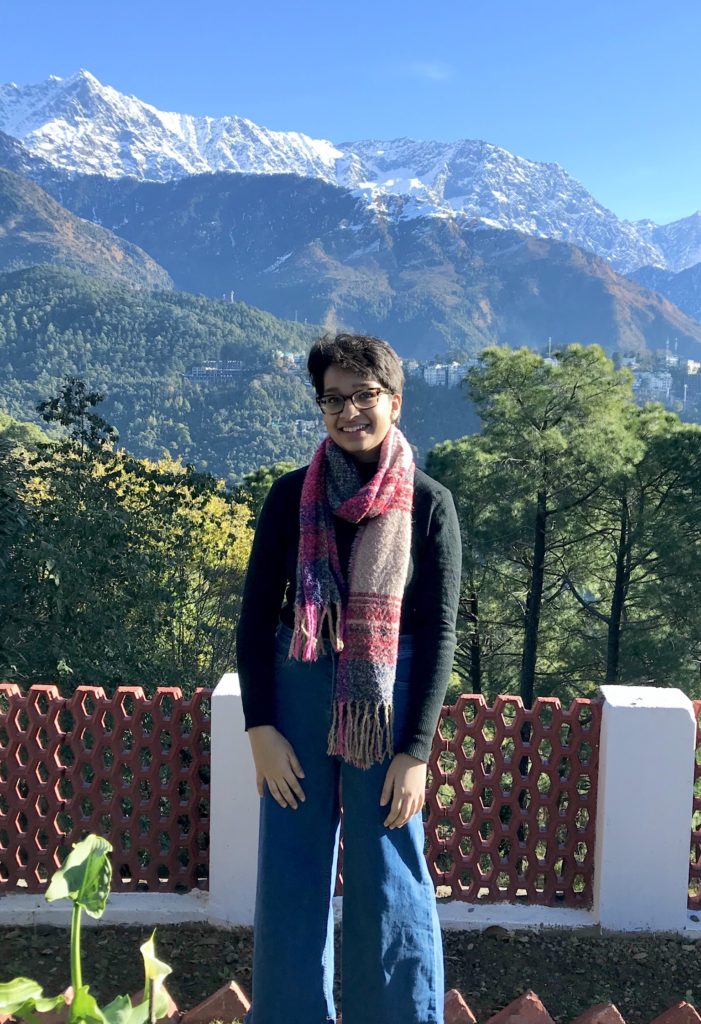Zobia Salam
‘Tis the season! The season to field questions on what I intend to do after I graduate in May with a degree in Political Science. In order to prepare myself for the barrage of queries about my future that are soon to come knocking anytime in the present, I have begun to ask myself about the past: Since when, how and why did I decide to pursue this subject for study.
I recall family gatherings. Once it had been made sure that everyone had met everyone, the guests split into two – the men occupied the drawing room, the women flitted between the bedrooms and the kitchen – to carry on different kinds of conversations. The womenfolk talked about their children, their work, the little things of everyday but the men seemed to discuss something larger – politics. They opined loudly on this politician and that policy, with great urgency, in grave tones. As the groups met again over the dining table, the women’s conversations were drowned out by the men’s opinions and hence was sold the idea that what the men were talking about was more important (and worthy of conversation) than what the women were talking about. Women selfishly gossiped only about their lives but there were men concerned with something larger than themselves.
That was it. I had discovered how I could be taken seriously. All I had to do was start reading the news, become interested in politics and know what words like ‘democracy’ and ‘republic’ meant. The trick worked; I was accepted as a member of the all-important Men’s Club on account of my newfound repository of knowledge but rarely was I given more than two minutes of speaking time. So in effect, I had been tricked by the trick! No matter, I would keep at it and one day, eleven year old me would be given more time to opine.
When I entered higher education and developed a sound voice of my own, it was too loud. The same impatience greeted me again, only this time because I had something to say. Ironically now, the pursuit of social sciences – which was my path to acceptance and approval – was a choice to be frowned upon. It was important to know politics, but to study it was stretching things a bit too far. Education, and higher education at that, was serious business and couldn’t be luxuriously spent on something that would assure hardly any returns.
This probably partly explains the strange disparity in the numbers of women pursuing higher education and those of women joining the workforce. Surveys show that while more women are pursuing a college education, only few of them end up working. Perhaps the story is such because the assurance of esteem, recognition and respect that higher education gives turns out to be false. If my years of slogging I’m higher education didn’t give me what was promised, what’s the guarantee that my joining the workforce would?
Although my cynicism is not as intense (yet), I resort to doubting my agency – whether or not I truly have it. Did I develop an interest in the study of politics because I liked what I read? Or did I force myself into developing the interest because I wanted to be taken seriously? Was my choice an autonomous freely made one? Or am I as big a victim of false consciousness as I denounce a handful to be? What if I actually liked something else and was made for that ‘something else’? What is that something else? Clearly, answers don’t come easy.

Zobia Salam is a final-year undergraduate student at the Department of Political Science, Lady Shri Ram College for Women. Unhealthily obsessed with long sentences and trivia, she is also deeply interested in questions about gender, media and cultural criticism in which she looks to possess a perspective before an opinion.
